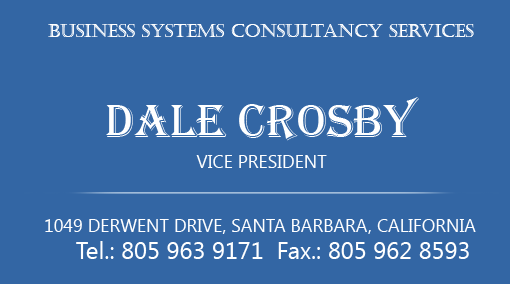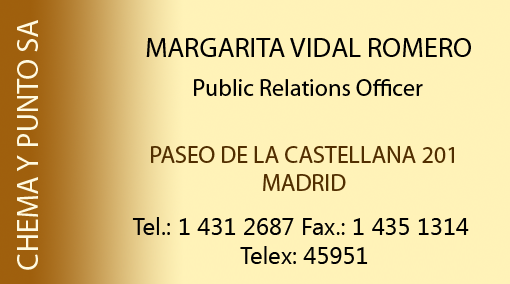7нн. Методические указания и задания к занятиям семинарского типа, контрольной и самостоятельной работе по дисциплине
 Скачать 0.85 Mb. Скачать 0.85 Mb.
|
|
part-time job (= working only some of the day or some of the week) on a fruit and vegetable stall in a market. _________________________ To his surprise, Paul loved the market. He made lots of friends and enjoyed working out in the open air. After two years, he took over (= took control of) the stall. Two years later he opened a second stall, and after ten years he had fifteen stalls. Last year Paul retired (= stopped working completely) at the age of 55, a very rich man. ___________________________________________________________ Writing 1. Read the text about Chloe, an exhibition organizer. Some words are in bold. Which of them does she use: to link (add and contrast) ideas? to make the text emotional? Which words does she use to avoid repeating “I like…” all the time? I really enjoy my job. I love working under pressure. I also like dealing with people. The other thing I really enjoy is problem solving. And when you organize an exhibition, there are always lots of problems to sort out! I enjoy working as a team, but I hate dealing with money. I wasn’t good at maths at school, but it’s a part of the job, so I have to do it. Though sometimes I work in the office, actually I’m not an office type of the person. I hate the routine. 2. Imagine you are at work. First, make notes under the following headings: What is your job? ________________________________________ What do you like about the job? ____________________________ Why? _________________________________________________ What don’t you like about the job? __________________________ Why not? ______________________________________________ Now write a short essay. ___________________________________________________________ 5. MOTIVATION AT WORK ___________________________________________________________ Work in pairs. Make a list of things that are important when choosing a job, e.g. earning a lot of money, working for a big company, helping other people. You have one minute. Why do you think people choose these jobs? a) teacher; b) banker; c) doctor; d) engineer. ___________________________________________________________ Reading. 1. Read the quotes from two people talking about their jobs. Marie, accountant I work in the finance department of a large company. There are a lot of benefits. For example, if the company makes a profit, all the employees get a bonus. There’s also a profit share, but that’s only for managers. I have a company car and I also travel abroad quite a lot – always business class and on expenses, of course. We also get a pension and private health insurance. The company pays for its staff to go on training courses to develop their professional skills. And we get free membership of the local gym. There are also rewards: it is hard work, but I get a lot of satisfaction from it. People recognize it if you do a good job, so there are good prospects for promotion. Tom, physiotherapist I work for the health service. There are a lot of rewards: the main one is the job satisfaction. I get a real sense of achievement when someone says ‘thank you’. You know you’re doing a worthwhile job. If you work hard, there are opportunities for promotion. I like the responsibility of making a difference to people’s lives. There are some benefits. We don’t get bonuses or anything like that, but there’s a very good pension. The health service pays for us to go on training courses, and people with children get help with paying for childcare. If I visit patients at home, I get a travel allowance, but it’s not very much. 2. Look at this list of things that motivate people and tick the things Marie and Tom mention.
3. Which things in the list in Exercise 2 are: benefits - extra things you get from your employer? rewards - things that make you feel good about the job? 4. Chose five rewards or benefits from the list in Exercise 2. Number them in order of importance for you. Explain your choice to another student. ___________________________________________________________ Writing Choose one of these jobs, or another job you know about:
Make a list of the rewards and benefits of the job. Imagine this is your job. Write a short text describing the rewards and benefits. Use the texts in Reading to help you. ___________________________________________________________ Get real Interview two people you know about their jobs. Find out about the benefits and rewards they get from their job. Option: look for a vacancy in any organization. Find out what benefits are provided. Tell the class. ___________________________________________________________ 6. JOBS AND RESPONSIBILITIES ___________________________________________________________ Vocabulary Match the job descriptions (1–11) with the business cards (a–k).
___________________________________________________________ Speaking Let’s play The Twenty questions game. One student leaves the classroom for a minute. Others think of a job for him (for example, a shop assistant). The student comes back. He can ask 20 yes/no questions to find out which job it is. Example: – Do I deal with money? – Yes, you do. – Do I buy things? – No, you don’t. ___________________________________________________________ Writing Look at the business cards of two people. They are going to take part in a conference. Fill in the registration form for them:  
2. Make your business card. Work in pairs. Ask questions to fill in the registration form for your partner. Then answer your partner’s questions using the information from your card. First make sure you know how to spell words and dictate numbers. ______________________________________________________________________________________________ Reading In every culture there is a standard way of doing things. Let us see how people exchange business cards. In some cultures, people exchange business cards at the beginning of a meeting or a visit. In others, they do it at the end of the meeting. In some cultures, people present their business cards with one hand. In others, they present the card with two hands. In some cultures, business cards are usually white. In others, they can be multi-colored. People expect others to behave according to their own cultural ways. If someone fails, it can be a disaster! _______________________________________________________________________________________________ Listening. A bad introduction Listen what happened in one company (tape script 1). Answer the questions: In the story, how do people usually offer their business cards? What do they usually do when they receive a business card? What did the man do wrong? Which country do you think this story comes from? What can be done to resolve the conflict? _______________________________________________________________________________________________ Speaking. Introducing yourself 1. Work alone. Think how to introduce and reply in the following situations: two people in a formal situation; two people in an informal situation; yourself at a company reception desk; yourself to a new colleague; yourself to a foreign visitor you are meeting at an airport. Act out your dialogues with a partner/partners. Discuss them with other students and your teacher. Were the dialogues adequate? What problems did you have? Make notes. 2. Put this conversation into the correct order. Elaine: Please call me Elaine. Paul: Morning, Jenny. How are you? Jenny: Yes, it is. Let me introduce you ... Excuse me, Ms Red ford. May I introduce you to Paul Carroll? |
